Senior figures from the Defence Suppliers Forum (DSF) have joined forces with approximately 100 graduates and apprentices from the defence sector aboard a Royal Naval vessel at the Defence and Security Equipment International (DSEI) event.
Their mission? To formalise a new commitment, designed to bolster the effectiveness of the UK’s defence enterprise.
This collaboration follows the Defence Command Paper 23’s recommendation for a closer bond between the defence sector and the industry. This enhanced alignment seeks to foster “collaboration, early engagement and the development of capability at pace.” Central to the agreement is the promise to “halve the time it takes to contract for new defence equipment and improve the availability of defence equipment by 50%.”
The DSF will implement a consistent programme to tackle the defence sector’s most urgent issues. The programme is pivotal for realising the Government’s strategic intentions for defence and facilitating joint responses to unforeseen challenges.
A noteworthy event marked this pivotal step forward: a signing ceremony aboard HMS Iron Duke, where over 100 emerging talents from the UK’s defence sector were present.
Andy Start, the CEO of DE&S and DSF Executive Group Co-Chair, was quoted saying, “As the latest Defence Command Paper sets out, we need an even stronger partnership between government and industry to meet today’s threats.â€
He expressed his pleasure at being accompanied by the young individuals who represent the future of the defence enterprise, reiterating their collective commitment to “deliver world class capability and support to the UK Armed Forces.”
John Howie of Babcock International Group and DSF Executive Group Co-Chair emphasised, “The commitment to deliver on these aims and objectives clearly shows that Government and Industry will take an increasingly collaborative, enterprise approach to secure the capability and capacity required by our Armed Forces and further strengthen our sovereign UK defence industry.â€


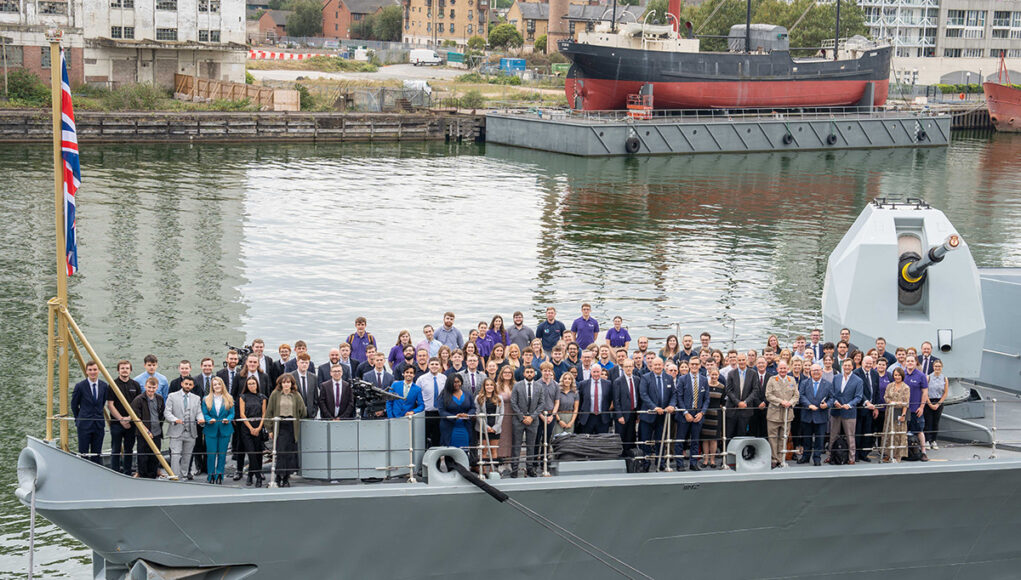
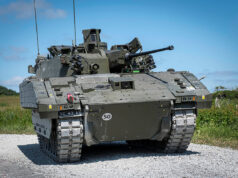
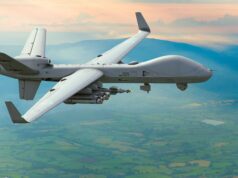
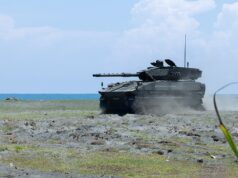

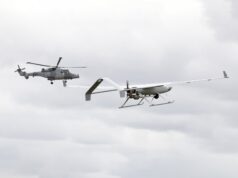




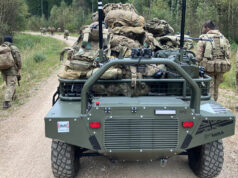

Actions – follow through above all – speak louder than words. As always the road blocks will be placed in the path of our best and brightest by politicians.
Indeed. The greatest threat to UK defence & forces is staggering incompetance & wilful weakening by HMG witholding funding. Who’s side are they actually on? They give loads of fine sounding speaches whilst actually dismembering & diminishing our forces, as they do with every other public service.
Without an increase in funding defence forces and kit will keep shrinking.
Inflation is high. Defence inflation is always higher than normal inflation. Stuff costs a lot more than it used to. The defence budget doesn’t keep up and lots of stuff has been added to the defence budget that wasn’t in it before.
Most of the defence spending increase announcements have been one off payments and to cover specific items like nuclear, munitions etc.
For the U.K. to have the forces it had 25 years ago the budget would of needed to be 3.5% of gdp for since 2010.
Cuts are easy and quick. Growing capabilities is slow and expensive
I agree with you.
Some consider that our forces failed in Basra and in Helmand – I find it hard to use that ‘ f-word’. But we need as a nation to analyse why we were not supremely successful on Op Telic and Op Herrick.
Weaknesses or errors in strategy (political, grand and military), force structure (insufficient numbers) and deficiencies in kit would I am sure all feature prominently in such an analysis.
There has been reputational damage and the Americans in particular lost some confidence in our effectiveness – that may well still exist, and in part explain why an unnamed US senior officer considered recently that we were no longer a Tier 1 military.
Probably more British lives were lost on those two Operations due to sub-optimal strategy, structure and kit – and fewer tactical objectives achieved than might otherwise have been anticipated.
We really cannot let this happen again. Next time we ‘fail’ on kinetic operations the implications may be even more serious.
The original mission was successful and is what the forces train for. Wipe out enemy forces and topple who is in charge.
It’s the bits after that of provide security and stand up and support some government afterwards for untold time. The locals don’t want forces there and as soon as one person dies or something bad happens opinions turn on the invaders.
I used to put it like how would I feel if Iraq forces toppled the U.K. government and put there forces on the streets to provide security promising their way will be better. Then they kill some folks near where you live with a bomb dropped from aircraft a few times, arrest some people, torture rumours start circulating whether true or not the population has lost faith.
I think Afghanistan may have had a better chance of getting better but forces nato would have had to stay for 100 years. Investing, building up local forces, providing economic growth. Getting generations through growing up in a better system. It could all of failed at the end but it is what was probably required to turn the country around